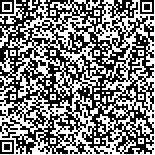| 引用本文: | 何佳凝,张琛,杨桂燕,徐正刚,张美文,王勇,李波,周训军,黄华南.洞庭湖区域黑线姬鼠(Apodemus agrarius)种群迁入湖滩后的繁殖特征.湖泊科学,2023,35(6):2101-2110. DOI:10.18307/2023.0638 |
| He Jianing,Zhang Chen,Yang Guiyan,Xu Zhenggang,Zhang Meiwen,Wang Yong,Li Bo,Zhou Xunjun,Huang Huanan.The reproductive status of Apodemus agrarius populations inhabiting the lake beach in Lake Dongting area after Three Gorges Project. J. Lake Sci.2023,35(6):2101-2110. DOI:10.18307/2023.0638 |
|
| |
|
|
| 本文已被:浏览 1929次 下载 1980次 |

码上扫一扫! |
|
|
| 洞庭湖区域黑线姬鼠(Apodemus agrarius)种群迁入湖滩后的繁殖特征 |
|
何佳凝1,2, 张琛1, 杨桂燕2, 徐正刚2, 张美文1, 王勇1, 李波1, 周训军1, 黄华南3
|
|
1.中国科学院亚热带农业生态研究所, 亚热带农业生态过程重点实验室, 湖南洞庭湖湖泊湿地生态系统国家野外科学观测研究站, 长沙 410125;2.西北农林科技大学林学院, 杨凌 712100;3.大通湖区农业技术推广中心, 益阳 413207
|
|
| 摘要: |
| 黑线姬鼠(Apodemus agrarius)是广泛分布于我国的主要农田害鼠之一,2003年三峡工程开始蓄水后洞庭湖湖滩鼠类群落结构发生了演变,黑线姬鼠已大量侵入湖滩,且逐步成为湖滩生境鼠类群落的优势鼠种。动物在新生境中的繁殖状况是了解其对环境适应的关键指标。为掌握黑线姬鼠种群侵入湖滩生境后的适应情况,为其种群动态的预测预报提供科学依据,本文对2003—2020年洞庭湖湖滩和农田生境中捕获的黑线姬鼠繁殖状况进行比较分析,并结合季节动态和生境差异等因子分析了该鼠在繁殖方面对湖滩生境的适应。结果表明:(1)湖滩生境中黑线姬鼠平均繁殖指数(0.71±0.27)低于农田生境(1.21±0.47),在2016—2020年湖滩上黑线姬鼠的繁殖指数为0.99,略高于农田的0.96;(2)湖滩生境较农田生境中的孕鼠在繁殖中偏向有更多的胎仔数,有6只以上胎仔数的孕鼠占比(65.59%)高于农田生境(49.10%);(3)湖滩生境中发现有幼年组的黑线姬鼠参与繁殖,其繁殖指数、参产率、怀孕率及雄鼠的睾丸下降率随年龄递增;(4)春季和秋季是湖滩生境中黑线姬鼠的主要繁殖季节,其繁殖指数、参产率、怀孕率都显著高于夏季和冬季,而雌雄比显著低于夏季;(5)湖滩生境不同植被结构对黑线姬鼠的繁殖有影响,黑线姬鼠在苔草+南荻的湖滩生境中繁殖能力较强,在南荻地和林地的繁殖力较弱。上述结果表明,黑线姬鼠已经适应了湖滩生境,且可能形成稍异于传统农田生境的繁殖特征。 |
| 关键词: 繁殖 黑线姬鼠 洞庭湖湖滩 三峡工程 |
| DOI:10.18307/2023.0638 |
| 分类号: |
| 基金项目:国家基金委区域联合基金项目(U20A20118)资助。 |
|
| The reproductive status of Apodemus agrarius populations inhabiting the lake beach in Lake Dongting area after Three Gorges Project |
|
He Jianing1,2, Zhang Chen1, Yang Guiyan2, Xu Zhenggang2, Zhang Meiwen1, Wang Yong1, Li Bo1, Zhou Xunjun1, Huang Huanan3
|
|
1.National Field Observation and Research Station of Dongting Lake Wetland Ecosystem, Key Laboratory of Agro-Ecological Processes in Subtropical Region, Institute of Subtropical Agriculture, Chinese Academy of Sciences, Changsha 410125, P.R. China;2.College of Forestry, Northwest Agriculture and Forestry University, Yangling 712100, P.R. China;3.Agricultural Technology Extension Center of Datonghu Section, Yiyang 413207, P.R. China
|
| Abstract: |
| Apodemus agrarius is one of the important pest rodents in farmland and broadly distributes in China. Since the establishment of the Three Gorges Project in 2003, the structure of rodent community has been evolving in Lake Dongting beach. A large number of A. agrarius has invaded the lake beach, and gradually dominated the community. The status of animals reproductive in a new habitat is one of the key indicator for understanding their adaptation to environment. It may provide scientific basis for further understanding the adaptation mechanism of A. agrarius after its invasion. It is also useful for the prediction and ecological prevention of A. agrarius. This study provided a comparative analysis of the reproductive status of A. agrarius caught in the lake beach and farmland habitat during 2003-2020 in Lake Dongting area, and analyzed their adaptability to the lake beach habitat in terms of reproduction in combination with seasonal dynamics and habitat differences. The results showed that: (1) The average reproductive index of A. agrarius was 0.71±0.27, which was lower than 1.21±0.47 in the farmland habitat. The reproductive index of A. agrarius on the lake beach during 2016-2020 was 0.99, which was slightly higher than 0.96 in the farmland. (2) Pregnant mice in the lake beach habitat tended to have more offspring than those in the farmland habitat, and the proportion of pregnant mice with more than 6 fetuses (65.59%) was higher than that in the farmland habitat (49.10%). (3) Juveniles were found to be involved in reproduction in the lake beach habitat, and their reproductive index, participation rate, pregnancy rate, and the rate of testes in scrotum increased with age. (4) Spring and autumn were the main breeding seasons for A. agrarius in the lake beach habitat. Its reproductive index, the rate of breeding female and rate of pregnancy were significantly higher than those in summer and winter, while the female-male ratio was significantly lower than that in summer. (5) Different vegetation structures in the lake beach habitat had an effect on the reproduction of A. agrarius, and the reproductive ability of the A. agrarius was stronger in the lake beach habitat of Carex sp.+ Miscanthus sp., and weaker in the reed land and wood land. These results suggested that the A. agrarius had adapted to the lake beach habitat and there were some difference in reproductive characteristics of the beach habitats compared with those of traditional farmland habitats. |
| Key words: Reproduction Apodemus agrarius Lake Dongting beach Three Gorges Project |
|
|